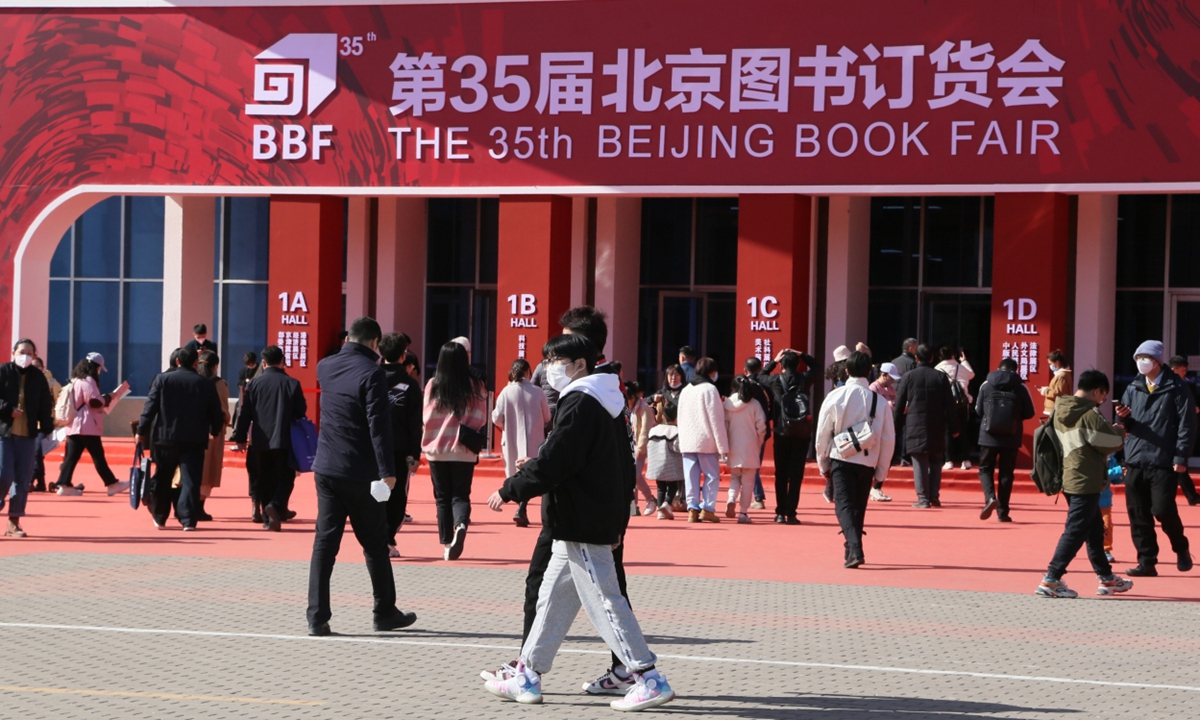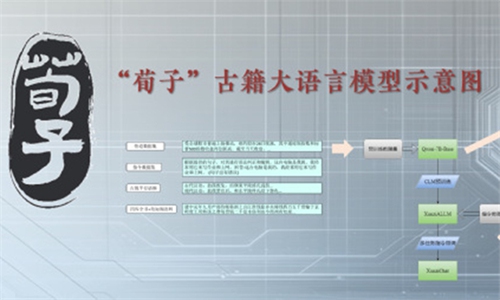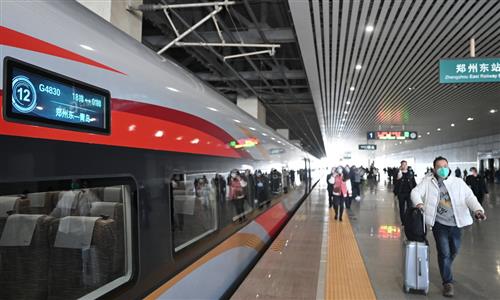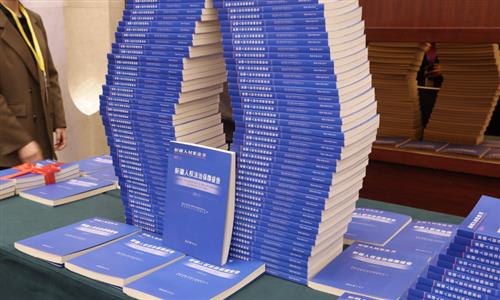ARTS / CULTURE & LEISURE
All-round boom in Chinese book industry feeds nationwide passion for reading
Literary love

People attend the 35th Beijing Book Fair. Photo: VCG
Editor's Note:
In 2023, a series of noteworthy topics have emerged in the Chinese cultural landscape. In the planning of the 2023 Cultural Gala, the Global Times will delve into nine important topics, aiming to showcase the multidimensional aspects of Chinese civilization and the diverse charms of Chinese culture.
This is the fourth installment of the Global Times' Year-end Special on culture. It will guide readers through the creative changes in book industry in 2023. Those creative changes not only include new strategies such as "book+," but also show the industry's open mind-set to embrace international sources by using books to bridge Chinese and Western cultures.

A view inside a bookstore Photo: VCG
Despite the proliferation of short-format content including video clips and news bites, over 87 percent of Chinese people sampled still prefer reading books. Data from the annual White Paper on Public Reading Development confirm Chinese people's loyalty to "books" over other forms of entertainment.Chinese readers' enduring passion for reading can be attributed to the diversity of Chinese books and a growing publishing market that is able to sustain people's cultural consumption needs.
The COVID-19 pandemic put downward pressure on the global book industry in the last three years, and yet the Chinese market has managed to rebound through its "offline to online" and "from home to the globe" strategies.
From offline to online
The spring of 2023 was also the "spring" of China's physical bookstores. Nearly 200,000 people in Beijing, for instance, visited local bookstores during the 2023 Spring Festival holidays.
Despite large comprehensive bookstores like the Beijing Books Building and the Wangfujing Bookstore were crowded during the holiday season, Jin Hong, an industry analyst, told the Global Times that the public's surging interest was still able to have "even distributions" of readers across the city's developed reading facilities.
With the support of the "one-district-one-bookstore" policy, Beijing now has around 2,000 physical bookstores with the smallest having been threaded into each district's different communities.
"Those widely dotted physical shops are the cornerstones to promote the public's reading scene," Jin noted.
The expanding "reading web" seems to have also increased positive competitiveness between bookstores, encouraging many establishments to launch awareness campaigns, including the branding of "reading" through niche perspectives.
Hidden within a factory-turned cultural creative block, the Beicang Library bookstore in the Chongqing Municipality is the city's hottest community library. It embraces locals regardless of age, attracting the elderly and a contingent of urban workers who gather there for business meetings.
Li Chuanbo, an architect and the founder of the Beicang Library, told the Global Times that, aside from its sales potential, he sees more importance in the facility fulfilling an "urban living room" function.
"We can see the creative change among Chinese physical bookstores when the rigid 'sale and buy' mode is replaced with experiential settings such as a good ambiance and the incorporation of the cultural creative industry," Yao Yu, a cultural creative industry expert told the Global Times. Yao also added that bookstores are now "cultural providers" that exemplify the new "book+" pattern.
Seeking to combine the "book" with other industries has made many physical book and publishing organs in China smoothly transition from static styles of operation to more dynamic tech-powered alternatives.
At the 35th Beijing Book Fair (BBF) launched in February, more than 400,000 publications were on show. Many Chinese publishers such as the Beijing Publishing Group (BPG) installed a "streaming room" right beside their exhibition booths.
BPG, as an example, made 4,600 sales a day and added more than 12,000 new followers to the company's online channels on platforms such as Bilibili, according to Gao, an employee at the company.
"The online platform has made us a 'backstage' industry to debut in a more visible way. The barrier-free nature of the internet has also helped us promote Chinese books overseas," Gao said.
From home to the globe
Including the BBF, the 29th Beijing International Book Fair (BIBF), and the 2023 Shanghai Book Fair (SBF), the Chinese publishing scene has been a highlight of several galas that have helped channel international attention and literary industry resources into the local scene.
At the BIBF that was launched in June, a total of 2,500 exhibitors from countries such as the UK, the US, Rwanda and Belgium were in attendance. DK, a top-tier publisher under Penguin Random House in the UK, brought their Imperial China book collection that is geared toward Chinese readers.
While Sun Zhefei, a DK representative, told the Global Times that the publisher seeks to see more "China-UK editor collaborations," Philippe Werck, a Belgian publisher who also participated in the event, said that the "big Chinese publishing industry" is mature in its expansive thinking and "inner growth."
Aside from embracing overseas resources, Chinese books have also managed to debut on global stages like the 75th Frankfurt Book Fair in Germany. Over 5,000 Chinese books were showcased at the fair covering subjects like the "Liangzhu civilization," "Chinese poems," and the "cultural sociology of China."
"Such publications open a window for foreign readers to see the diverse China progress from its long history to modernity," Yao told the Global Times.
Along with the country's successful paperback literary exports were products from China's thriving Online Literature (OL) industry. China Literature, a leading Chinese OL company also appeared at the German fair, showcasing the creative transformation of stellar web novel IPs like Joy of Life.
Over years of development, China's book industry has grown in burgeoning confidence and boundless creativity, especially seen in the innovation of the sci-fi genre, now a world leader.
In October, the world's most notable sci-fi award - the World Science Fiction Convention - was launched in Chengdu. Along with it was the Hugo Award, the highest global laurel for sci-fi literature, which was revealed in China for the first time.
The Chinese book industry's growth, both the "physical" and "digital" sectors, was strongly underpinned by the country's policies. "Shuxiang Zhongguo," a national-level cultural campaign was launched during the 14th Five-Year Plan period (2021-25) with the aim to promote reading among the public.
"Reading is a major path for people in China to enhance their confidence in Chinese culture," Yao emphasized.



